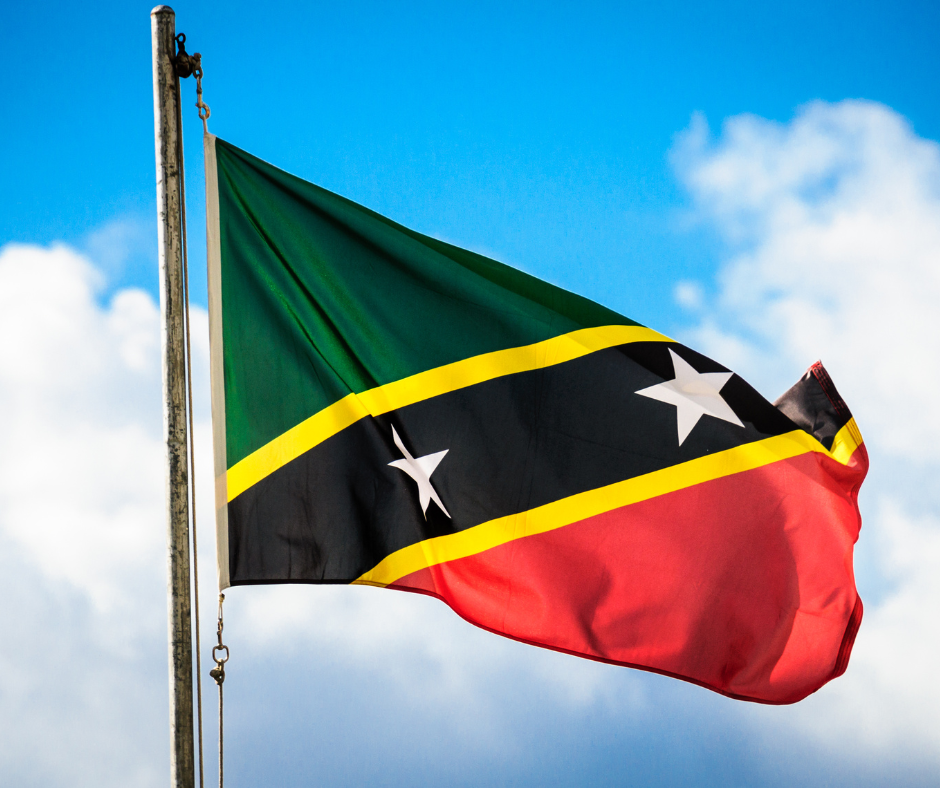Grenada CBI to Join Caribbean CBI Reform with 30-Day Residency Over 5 Years
Grenada is set to join four fellow Caribbean CBI nations in adopting a new framework for Citizenship by Investment (CBI) programmes. This initiative, part of a Caribbean CBI reform, introduces a 30-day residency requirement over five years for CBI recipients, tighter due diligence controls, and the creation of a new regional regulator — the Eastern Caribbean Citizenship by Investment Regulatory Authority (EC-CIRA).
The Caribbean CBI reform effort reflects a strong commitment by Grenada to uphold the integrity and sustainability of its CBI programme in the face of rising international scrutiny. With measures aimed at increasing transparency, ensuring genuine ties between citizens and host countries, and harmonising regional standards, the Grenada CBI reform marks a significant shift in how Grenada Citizenship will be granted and maintained.

Grenada is set to join a region-wide agreement alongside Antigua and Barbuda, Dominica, St Kitts and Nevis, and St Lucia to introduce Caribbean CBI reform and overhaul the structure and governance of their respective CBI programmes. The shared Caribbean CBI reforms are designed to standardise and strengthen key elements of the programmes, especially around due diligence, post-citizenship obligations, and agent regulation.
The driving force behind these Caribbean CBI reforms is the proposed establishment of the Eastern Caribbean Citizenship by Investment Regulatory Authority (EC-CIRA), an independent regional body that would oversee the compliance and operations of Caribbean CBI programmes in all participating countries.
This multilateral CBI reform is partly a response to growing concerns from international partners — particularly the United States and the European Union — about the need for stronger regulation and a more substantive “genuine link” between CBI applicants and the countries whose citizenship they acquire. For Grenada Citizenship, the new rules would mark a shift toward greater accountability and long-term programme resilience.

Caribbean CBI reform - Annual Application Cap
One of the key structural features of the proposed agreement is the introduction of annual application caps. The EC-CIRA would determine the maximum number of CBI approvals permitted in each country per financial year. These caps may vary between countries and can be used both as a tool for programme management and as a disciplinary measure.
For example, the EC-CIRA would have the power to reduce a country’s CBI quota if it fails to comply with its obligations under the agreement. While EC-CIRA could not technically suspend a country’s programme, reducing its application quota to zero would effectively have the same impact.
Caribbean CBI reform - New Requirements for Grenada Citizenship Applicants
Under the proposed framework, applicants granted Grenada Citizenship by Investment would be required to meet more stringent post-approval criteria. These include:
- Residency Requirement: All Grenada CBI recipients must spend a minimum of 30 days in Grenada within the first five years of receiving citizenship.
- Civic Integration: Applicants would be required to participate in cultural orientation and civic education programmes to enhance their understanding of Grenadian society.
- Interview: Each applicant must attend an interview, either in person or via video link, as part of the CBI process. Interviews are already an existing part of the Grenada CBI process, so this feature is being maintained in the Agreement.
- Passport Validity: Initial passports would be issued for five years, with renewal contingent on compliance with residency and civic engagement obligations.
- Penalties for Non-Compliance: If the applicant fails to meet the requirements, Grenada may impose a fine of up to 10% of the investment amount and/or initiate citizenship revocation proceedings. However, enforcement would be at the discretion of each state.
These new provisions reflect a regional move away from the perception of CBI as a “transactional” process, reinforcing instead the idea that citizenship is a privilege requiring real connection.

Caribbean CBI reform - Information Sharing
To enhance transparency and coordination among the five countries, a regional database of all applicants would be created and maintained by the EC-CIRA. This centralised information hub would enable better coordination and ensure that rejected applicants cannot bypass one country’s decision by applying in another.
A crucial provision affirms that if an applicant is denied by one country, none of the other four Caribbean CBI countries may accept or process their application. While existing legislation in all Caribbean CBI states already prohibits such reapplications in alignment with the OECS principle of free movement of people, enforcement was previously hindered by the lack of information sharing among jurisdictions. With the new agreement facilitating inter-state information exchange, this provision can now be effectively enforced, closing the loophole that allowed applicants to reapply in different jurisdictions after a rejection.
Additionally, all applicants would be subject to due diligence checks by CARICOM IMPACS-JRCC, a regional intelligence and law enforcement entity. A fee would be paid by the applicant to cover the cost of these investigations and for maintaining the shared database.
While due diligence standards would not be fully uniform across all states, each country must follow risk indicators and protocols set by the EC-CIRA, ensuring a minimum threshold of vetting rigour.
Caribbean CBI reform - Pre-Qualification for Industry Participants
The agreement introduces robust oversight for CBI agents and real estate developers, who would now be required to pre-qualify with the EC-CIRA before they can operate within any of the Caribbean CBI programmes across the five states.
The EC-CIRA would be empowered to:
- License, investigate, and discipline agents and developers
- Revoke licences in cases of non-compliance
- Issue Directives and Codes of Conduct with the force of law (unless overturned by a competent judicial authority).
CBI Units and relevant government agencies in Grenada and the other four participating countries would also be subject to annual audits conducted by EC-CIRA to ensure ongoing compliance and transparency.
Caribbean CBI reform - Institutional Powers and Enforcement
The EC-CIRA would hold wide-reaching powers to govern Caribbean CBI activities. Some of its key functions and tools include:
- Setting and enforcing citizenship quotas
- Investigating violations by licensed agents and developers
- Issuing binding Directives and Codes of Conduct
- Imposing fines and reducing CBI limits for non-compliant states
- Resolving disputes within the CBI ecosystem, effectively acting as a quasi-judicial body
The agreement would allow a country to withdraw with six months’ notice, which introduces a degree of legal flexibility but may weaken long-term harmonisation efforts if invoked.
Final Thoughts

The proposed Caribbean CBI reform marks an important moment in the development of Grenada’s Citizenship by Investment programme. By preparing to adopt new post-citizenship obligations, centralising oversight under a regional authority, and enforcing stricter agent and developer regulation, Grenada is signalling its intent to be a leader in the responsible and sustainable investment migration.
This new Grenada CBI framework ensures that Grenada Citizenship by Investment maintains a respected and internationally accepted status.
FAQs
What is the Eastern Caribbean Citizenship by Investment Regulatory Authority (EC-CIRA)?
The EC-CIRA is a proposed independent regional regulatory body that would oversee and harmonise Citizenship by Investment programmes across participating Caribbean countries, including Grenada. It would have powers to regulate, audit, and enforce compliance among agents, developers, and CBI units.
Has Grenada officially joined the new CBI regulatory framework?
Not yet. Grenada is set to join the proposed framework, which remains under finalisation and is expected to be adopted by Antigua and Barbuda, Dominica, Grenada, St. Kitts and Nevis, and St. Lucia.
What are the new residency requirements for Grenada Citizenship under the proposal?
Applicants would be required to spend at least 30 days in Grenada (or the issuing country) within the first five years of obtaining citizenship. They must also attend a civic education session, a cultural orientation, and an in-person or video interview.
Will these reforms affect existing CBI citizens?
The new rules primarily apply to applicants post-citizenship grant, so those applying after the implementation will be subject to these changes. However, current citizens renewing their passports may also be assessed on residency and genuine links.
What is the annual cap on citizenship approvals?
Each participating state, including Grenada, would have a maximum number of citizenships approved per year, as set by the EC-CIRA. These numbers may vary from state to state.
Will the due diligence process change?
Yes, due diligence will be partially harmonised across participating countries. Grenada and other states will follow guidance issued by the EC-CIRA but will retain responsibility for conducting their own due diligence.
What happens if an applicant is rejected by one country?
If an applicant is refused by any participating state, they cannot apply to another within the framework. This measure aims to prevent “jurisdiction shopping” by previously rejected applicants.
How does this reform affect licensed agents and developers?
Agents and developers must pre-qualify through EC-CIRA. The EC-CIRA can investigate and revoke licences, and compliance with issued directives and codes of conduct will be mandatory.
Why is this regional Caribbean CBI reform being proposed?
This Caribbean CBI reform aims to protect visa-free access to key jurisdictions like the EU and US by ensuring programmes are more consistent, transparent, and less commercial in appearance—emphasising “genuine links” to the country.
Can a participating country withdraw from the Agreement?
Yes. Any country, including Grenada, can withdraw with six months' notice, but this could undermine the stability and credibility of the regional system.




.svg)





.png)





.png)





.png)





.png)





.png)






.png)

.png)